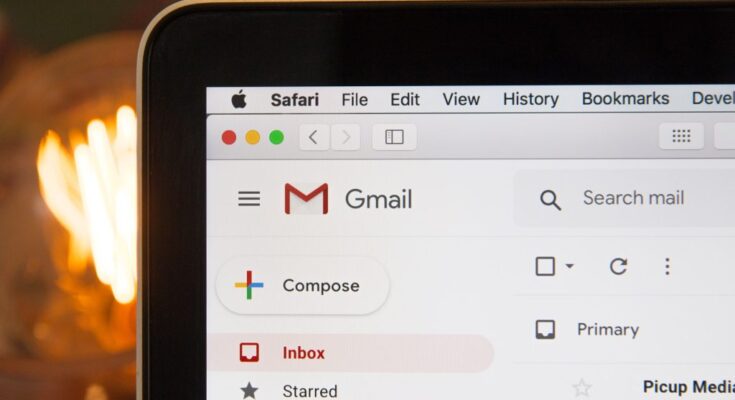When you write your resume or CV, your goal is to stand out in a good way. You want your resume to be noticed amid the crowd of applicants. Your cover letter has the same goal. And at your interview, you also wish to make a good first impression.
You’ve worked hard to write a good resume and cover letter. You prepared for your interview, and you feel like you nailed it. Is there anything you can do post-interview to further increase your chances or getting the job you want?
In a word, yes! You can do one simple thing that shows initiative, interest, and good manners. You can write a thank-you note after your interview.
Why should you write a thank you email following your interview? How can it benefit you? How should you write it, and when should you send it? Check out our favorite tips and sample thank you notes below to learn how to write a thank you email after an interview.
Why Should You Write a Thank You Note After Your Interview?
In most cases, you are not the only candidate to be interviewed for a particular job. You’re likely to be compared to five or more fellow interviewees. Sending a thank you email after an interview will keep you in the forefront of your interviewer’s mind. It will cause him or her to think about you after the interview is over. After all, many candidates – between 30 and 50 percent, depending on the study – just don’t take the time to say thanks.
One survey noted that 80 percent of companies found thank you notes (or the lack thereof) helpful to their hiring decision. In fact, according to one report, “nearly one in five of the hiring managers and recruiters surveyed said that they’d dismissed a candidate because they didn’t send a thank-you note after the interview.” Yikes! This underscores the importance of saying thank you.
Sending a thank you email also demonstrates positive qualities that your future employer may be seeking. For example, your resume may say that you are self-motivated or people-oriented, but writing a thank you note shows that you are.
Gratitude is another quality that is increasingly valued in the workplace. Studies show that employees who show gratitude at work – “recognizing the good things in their lives and saying thank you” – have “more positive emotions, less stress and fewer health complaints, a greater sense that we can achieve our goals, fewer sick days, and higher satisfaction with our jobs and our coworkers.”
Taken together, those benefits not only create a positive work environment and company culture, but they better the company’s bottom line, as well. A good hiring manager will recognize and pursue a grateful employee.
Some jobs, such as customer service, human resources, mental health careers, or social services, especially require empathy, good interpersonal skills, and communication skills. If this is the case in your field, writing a thank you note can be especially helpful.
Even if your interview did not go as well as you had hoped, writing a thank you email can increase your chances. Remember, you do not know what happened at other candidates’ interviews. Writing a thank you note could tip the scales in your favor.
How to Write a Thank You Email After an Interview
As already noted, post-interview thank you emails are few and far between. Likely, you’ll be one of only a few candidates to write one. Thanks to this guide on how to send a thank you email after an interview, you’ll also write the best thank you possible.
If you follow these steps, you’ll master the art of the thank you email and land the job of your dreams.
Address the Interviewer
Ideally, you have the direct email address of the interviewer or hiring manager. It is better to send the thank you email directly to this person than to a general company inbox.
Even if you don’t have a direct email address, note the interviewer’s name in the subject line. Use their name in the greeting of the email body as well.
Thank Them for Their Time
Businesspeople are busy people. The purpose of this email is to thank them, so do this in the first sentence of the email. You can thank them for their time, for taking the time to speak with you.
Express Interest in What You Learned
During the course of the interview, you probably learned things that you didn’t already know about the company. After thanking the interviewer for his or her time, tell them that it was a pleasure learning about the company. Cite something specific if possible. Many companies want enthusiastic employees, and this shows your sincere interest in the company and the position.
Solve a Problem
Can you demonstrate how you would solve a problem the company faces? True, you don’t yet know all the inner workings of the company. Perhaps the interviewer explained a particularly challenging aspect of the job, or a deficit the new hire should fill. Or, you can think about the company’s mission in general, or an economic, technical, or supply chain issue facing many companies in the industry.
Cite the problem, perhaps by saying, “I was thinking about what you said about…” Then explain a way in which your experience sheds light on a solution.
Note that you should use extreme caution in how you word this section of your email. You don’t want to come across as a know-it-all or as someone who does not respect authority. You might say something like, “In my previous role as [job title] with [company], I found that using [cite the solution] [increased/decreased/improved] [cite an aspect of the work] by [X] percent.”
Addressing the problem and solution in this way demonstrates your expertise and a definitive example of your problem-solving skills in the past. You can conclude this portion of the email with the words, “I’m sure this experience will yield similar success as your new [cite position you are hoping to obtain].
This is the aspect that will set your thank you note apart from all the others. It shows further initiative and gives the interviewer a sample of your work.
Close with Gratitude
You opened your letter with thanks, and you should close it with thanks. Invite the interviewer to contact you if they need additional information. Say that you look forward to hearing from them. Thank them once again for their time.
Include Your Contact Information
Sign the email with your full name (first and last name), phone number, and email address. Yes, it is true that the interviewer already has this information. But if you give it to them again, they don’t have to hunt for it. This ease of access may make it more likely that they will contact you. You can also include a link to your professional website or LinkedIn profile, if you so desire.
Don’t forget to proofread your email before you send it. Typographical errors make you look unprofessional and can undermine the good done by sending the note. Consider using an online tool like Grammarly or having a good writer you know to give it a quick read.
What about sending a hand-written thank you card in the mail? While this is a very personal touch, it should only be used in specific industries (for example, if you are applying to a law firm, a wedding planning company, or a C-level position) or if no email address is available – an uncommon situation in this technological age. The reason email is better than “snail mail” has to do with timing. Waiting a few days for the postal service to deliver your thank you note could mean it arrives too late. If you do decide to send a hand-written letter, you can do this in addition to the email. After all, the timing of your thank you note is very important, as discussed in the next section.
When to Send a Thank You Email After an Interview
How do you know when to send a thank you email after an interview? Should you send a thank you note after every job interview?
First, let’s consider the question of when. You should always send your thank you within 24 hours of the interview. Ideally, you should go home and write your note the same day.
Why should you send your email so soon after the interview? In the fast-paced world of business, decisions may be made quickly. If you wait longer than a day, you may find that the position has already been granted to someone else.
Should you send a thank you note after every interview? We’ll consider that question in the next section.
Sending a Thank You Email After an Interview to Multiple Interviewers
Have you applied to multiple jobs? Have you gone on multiple interviews? Should you send a thank you to all of your interviewers?
The simple answer is yes, you should. But take care to personalize the thank you note to each interview. It’s okay to create a template like the one below, but re-read it before you hit send. You wouldn’t want to accidentally mention the wrong company!
In some cases, you may be interviewed by multiple persons at the same company. Again, you should send a personalized thank you email to each of the interviewers. Don’t send the exact same email, because they may share the notes with one another as they discuss the candidates. Try asking for business cards at the close of your interview in order to obtain their email addresses. If you don’t have direct contact information for every interviewer, you can send an email to the one you do and ask them to share it with the others. Or, you can ask for the email addresses of the other interviewers at the end of the thank you note.
If you get called in for a second interview with the same hiring manager, send a thank you email the second time as well. Be sure to personalize the second email as much as the first by mentioning specifics from the second interview.
What if you get a call that you’ve been accepted to one of the positions to which you applied? Should you still thank the other interviewers? Yes. Why? Networking is becoming increasingly important in the business world. Thanking the interviewer and telling them that you’ve accepted another job leaves them with a favorable impression. You might leverage that goodwill at some future time – in business to business interactions or when seeking a job in the future.
The same is true if the interview made you realize that the job in question is not right for you. Send a thank you note, and clearly and respectfully state that you’d like to decline the position. This will save the interviewer time, and he or she will appreciate that. Again, you will leave the door open for possible positive interactions in the future.
Sample Thank You Emails
Are you still feeling a bit stuck on what to write in your thank you email? Use the sample note below, and customize it to fit your needs. Notice that it contains all the information cited in “How to Write a Thank You Email After an Interview,” above.
Subject: Thank you [Interviewer’s name]
Hello [Interviewer’s name],
I wanted to thank you for taking the time to meet with me and discuss [the position title] at [the company’s name]. It was certainly a pleasure to learn more about [cite something discussed during the interview].
I’ve been thinking a great deal about what you said about [cite a problem or challenge the company is facing]. During my time at [previous company], I found it effective to [site solution]. In fact, [the solution] resulted in an [increase/decrease/improvement in the problem] of [X] percent.
I am confident that my experience will yield similarly positive results as your new [cite position].
If you require any additional information from me, please feel free to contact me. I’m looking forward to hearing from you [on a specific date or within a specified timeframe, if applicable].
Again, thank you for your time!
Sincerely,
[First and last name]
[Phone number]
[Email address]
What if you’re applying to an entry-level position and you feel that the above thank you note is a bit too formal? Try the following thank you note sample on for size. It is especially designed for small companies or those with a relaxed atmosphere.
Subject: Thanks for the Interview!
Hi [Interviewer’s name],
I really had fun today learning about the rewards and challenges of working as a [position title] at [company name]. I am very excited to join your team and help to [cite a responsibility or two of the position in question].
Please feel free to contact me if you need any more information. I look forward to your call. Again, thank you for your time.
Sincerely,
[First and last name]
[Phone number]
[Email address]
As a post script to this conversational email, you can even mention something extraneous that you discussed during the interview – that you hope the interviewer enjoyed whatever he or she mentioned they’d be doing after work, or that you tried a restaurant, movie, etc. that he or she suggested. This builds rapport and suggests friendly working conditions if you are hired.
If you’re still feeling like your thank you email doesn’t quite make the grade, even after utilizing these tips and this sample, consider this – any thank you note can put you ahead of the competition, since many candidates never send one. That alone is a good reason to say thanks, even if you feel unqualified to address a problem and its solution.
In Conclusion
When you apply for a job, you want to stand out in a good way. Writing a thank you note after an interview is one way to do just that. Most interviewees don’t write a thank you note, but doing so can demonstrate a number of desirable qualities. Include thanks for the interviewer’s time, cite something you learned during the interview, and demonstrate how you would solve a problem. Be sure to send the email on the day of your interview or the day after.
But what if you sent your thank you email and you never heard back? Check out these four tips from the Harvard Business Review on how to follow up after a job interview.




